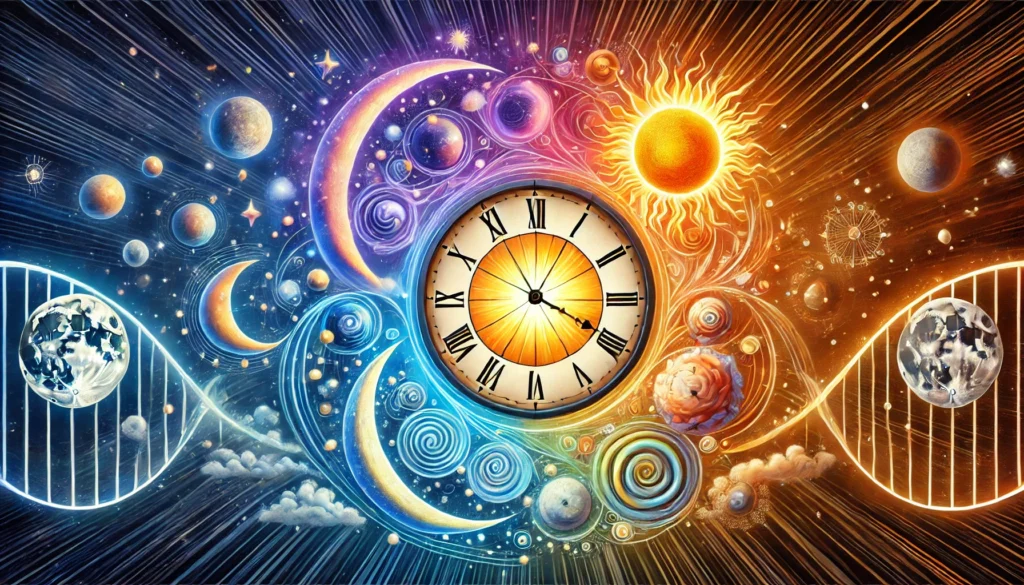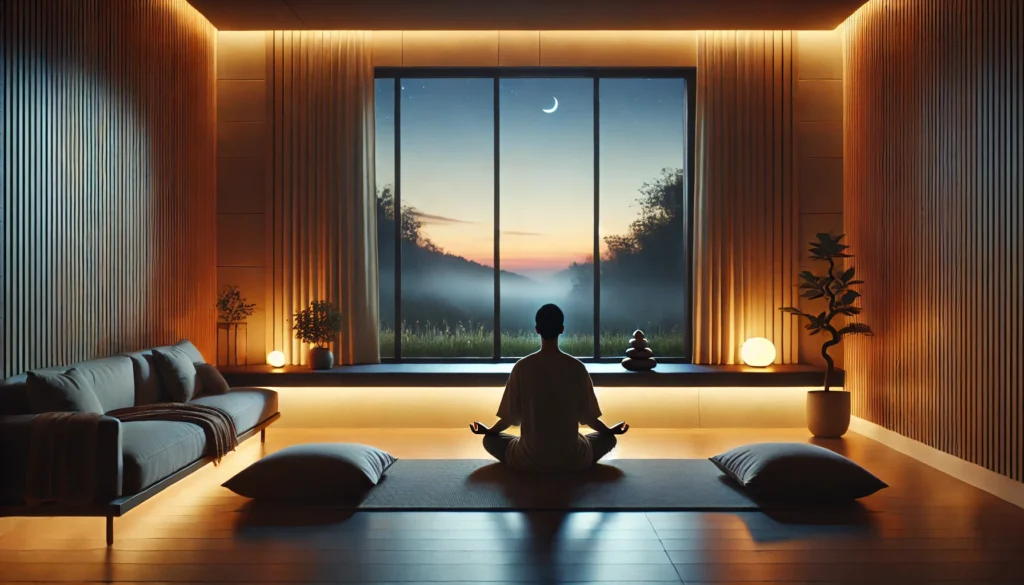Feeling sleepy is a universal human experience. It’s a signal from our bodies that it’s time to rest and recharge.
But what exactly triggers this feeling of sleepiness?
This article will delve into the various factors that contribute to feeling sleepy. We’ll explore the physiological, environmental, and lifestyle elements that can affect our energy levels and sleep patterns.
We’ll discuss the role of circadian rhythms, the impact of diet and nutrition, and the effects of physical activity on sleepiness. We’ll also examine how stress, medical conditions, and even our genes can influence our sleep patterns.
In addition, we’ll look at the role of technology and blue light exposure, the benefits and drawbacks of napping, and the complex relationship between mental health and sleep.
Finally, we’ll explore the world of biohacking sleep, including the use of nootropics and other techniques to optimize sleep and reduce fatigue.
Whether you’re a health and wellness coach, a science journalist, or a biohacker, this comprehensive guide will provide you with a deeper understanding of what makes us sleepy and how to manage it effectively.
You May Also Like: Why Do We Sleep? Exploring the Importance of Rest for Optimal Focus and Performance
Understanding Sleepiness: The Basics
To understand why we get sleepy, we must first grasp the basics of sleepiness. Sleepiness is the body’s way of indicating a need for rest and recovery. It is a complex process influenced by various physiological signals.
One key component in this process is adenosine, a chemical in the brain that accumulates during wakefulness. As adenosine levels rise, they promote sleep drive, urging the body to rest. This mechanism ensures we balance our need for activity with periods of rest.
Several factors influence sleepiness, including:
- Biological processes: The buildup of sleep-regulating chemicals like adenosine.
- Environmental cues: Light exposure and daily routines.
- Lifestyle choices: Diet, exercise, and stress management.
The circadian rhythm, often referred to as the body’s internal clock, plays an instrumental role as well. It regulates sleep-wake cycles by responding to environmental signals such as light and darkness.
As the day progresses, adenosine levels rise, the circadian rhythm advances, and melatonin—a hormone that promotes sleep—begins to take effect. These processes orchestrate the ebb and flow of alertness and drowsiness in a predictable manner.
However, disruptions to these natural processes, such as irregular sleep schedules or excessive light exposure, can lead to increased sleepiness at inappropriate times. Additionally, lifestyle choices like poor diet and lack of exercise can exacerbate feelings of fatigue.
By understanding these basics, individuals can better align their habits and environments with their body’s natural signals. This alignment promotes improved sleep quality and reduced daytime drowsiness, contributing to overall well-being.
The Science of Sleep: Circadian Rhythms and Melatonin
Our body’s sleep-wake cycle is intimately linked with circadian rhythms. These natural processes help regulate important bodily functions like sleep, digestion, and hormone release. Circadian rhythms operate on roughly a 24-hour cycle, syncing with light and dark cues from our environment.
Light is a major player in this process, directly influencing the production of melatonin. Melatonin is a hormone that signals the body to prepare for rest. Its production increases as the sun sets and decreases with morning light. This ebb and flow of melatonin help maintain a regular sleep schedule.
Disruptions to the natural light-dark cycle can profoundly impact sleepiness. For instance, exposure to artificial light, especially blue light from screens, can suppress melatonin production. This can confuse the circadian rhythm and lead to difficulties falling asleep. As a result, individuals may feel sleepy during waking hours or alert when they should be resting.
Jet lag and shift work are classic examples of circadian rhythm disruptions. Traveling across time zones or working irregular hours can desynchronize the body’s internal clock with the environment. This misalignment often results in poor sleep quality and daytime drowsiness. Adjusting gradually to new schedules and maximizing exposure to natural light can help realign the circadian rhythm.
By understanding how circadian rhythms and melatonin interact, we can better manage our environments and habits. This knowledge empowers us to support our body’s natural sleep cycle, improving both sleep quality and daytime alertness.

Dietary Influences on Sleepiness
Diet plays a significant role in managing sleepiness. What we eat and drink can have profound effects on our energy levels and overall sleep quality. Nutrients and meal timing are particularly influential on how sleepy or alert we feel throughout the day.
Certain foods are known to boost energy and promote alertness, while others can induce drowsiness. For example, meals rich in carbohydrates may increase the production of serotonin, a neurotransmitter that promotes relaxation and sleep. On the other hand, protein-rich foods can enhance alertness by boosting levels of tyrosine, an amino acid that supports the production of dopamine and norepinephrine.
Here are some dietary factors to consider for managing sleepiness:
- Carbohydrates: Tend to make you feel sleepy when consumed in large amounts.
- Protein: Supports alertness through neurotransmitter production.
- Caffeine: Can temporarily boost alertness, but too much disrupts sleep cycles.
- Alcohol: Initially sedative but leads to poor sleep quality and disrupted rest.
- Meals: Timing and portion size can affect sleepiness, with large meals often causing drowsiness.
Caffeine is a well-known stimulant found in coffee, tea, and other beverages. While it can keep you awake, consuming it too late in the day can interfere with sleep patterns. It’s best to limit caffeine intake to earlier in the day to avoid nighttime disruptions.
Alcohol, though often perceived as a sleep aid, can actually worsen sleep. It might help you fall asleep initially, but it disrupts the deeper stages of sleep, leading to a less restful night and grogginess the following day. Moderation is key when it comes to alcoholic drinks, particularly in the evening.
Understanding how diet affects your sleep can empower you to make informed choices. Balancing nutrients and timing meals strategically helps you maintain optimal energy levels. These dietary adjustments can lead to improved sleep quality and reduced daytime sleepiness.
The Impact of Stimulants and Depressants on Sleep
Stimulants and depressants significantly influence how we feel in terms of energy and tiredness. They interact with our brain chemistry and can either keep us awake or make us drowsy. Understanding these effects helps in managing sleepiness effectively.
Caffeine is the most commonly consumed stimulant. Found in coffee, tea, and some sodas, caffeine blocks adenosine, a brain chemical that promotes sleep. This blockage can enhance alertness and delay sleepiness for a few hours. However, excessive caffeine consumption can lead to jitteriness and anxiety, negatively impacting sleep quality if consumed later in the day.
On the flip side, depressants like alcohol and certain medications can induce a relaxed state that might seem beneficial for sleep. Despite initial drowsiness, alcohol disrupts the sleep cycle, leading to lighter, less restful sleep. While some sleep medications can be effective in the short term, they often alter natural sleep architecture and may cause dependence over time.
The timing of ingesting these substances is crucial. Consuming stimulants or depressants too close to bedtime is likely to affect sleep. Being mindful of how these substances influence your sleep allows you to make better choices for maintaining balanced energy levels and improved sleep quality.
Sleep Hygiene: Practices for Better Sleep Quality
Sleep hygiene refers to a set of practices and habits aimed at enhancing sleep quality. Implementing these strategies can significantly reduce sleepiness. Good sleep hygiene is fundamental to achieving restful sleep and alertness throughout the day.
Consistency is key for sleep hygiene. Going to bed and waking up at the same time every day helps regulate your body’s internal clock. This regularity reinforces your circadian rhythms and improves the overall quality of your sleep.
Creating a restful environment is essential. Ensure your bedroom is dark, quiet, and cool. Consider using blackout curtains, earplugs, or white noise machines to eliminate disturbances. A comfortable mattress and pillows also contribute greatly to good sleep.
Pay attention to pre-sleep activities. Limit exposure to screens and bright lights at least one hour before bed, as they can interfere with melatonin production. Instead, indulge in relaxing activities like reading a book or practicing meditation to signal your body that it’s time to wind down.
Practicing the following sleep hygiene tips can be beneficial:
- Maintain a consistent sleep schedule.
- Create a sleep-conducive environment.
- Avoid screens before bed.
- Limit caffeine and alcohol intake.
- Engage in relaxing pre-sleep activities.
By integrating these sleep hygiene practices into your daily routine, you can foster better sleep patterns and feel more energetic. Making these small adjustments leads to long-term improvements in sleep quality and overall well-being.
Physical Activity: Its Role in Sleep and Alertness
Engaging in regular physical activity is highly beneficial for sleep quality. It plays a crucial role in reducing feelings of sleepiness during the day. Exercising consistently can help you fall asleep faster and deepen your sleep.
The timing of your exercise matters. Physical activity can boost alertness and energy levels. However, exercising too close to bedtime might interfere with sleep. It’s best to complete workouts at least a few hours before going to bed.
Regular exercise helps regulate the sleep-wake cycle by influencing the production of sleep-related hormones. Activity during the day raises body temperature. This rise can promote drowsiness when body temperature drops, signaling the body to prepare for rest.
Incorporating a variety of exercises, such as aerobic activities and strength training, into your routine can enhance sleep. Physical activity can also reduce symptoms of insomnia and increase the amount of deep sleep you get. By adopting a structured exercise program, you may experience improved sleep quality and alertness, leading to a more productive and vibrant day.
Stress, Anxiety, and Their Effects on Sleep
Stress and anxiety are major culprits of sleep disruption. High stress levels can lead to sleep difficulties. This often manifests as trouble falling or staying asleep.
Anxiety heightens brain activity, which can result in racing thoughts. This mental state makes it challenging to relax at bedtime. Consequently, this lack of relaxation leads to fragmented sleep.
The body’s stress response also triggers the release of cortisol, a hormone that can affect sleep. Elevated cortisol levels at night may disrupt the sleep cycle. This disruption contributes to early morning awakenings.
Managing stress and anxiety through relaxation techniques can improve sleep quality. Practices such as mindfulness and deep breathing promote calmness. Incorporating these techniques can aid in settling the mind for a restful sleep. Stress reduction not only enhances sleep but also helps in maintaining better overall health, reducing fatigue, and improving daily functioning.

Medical Conditions and Medications That Cause Sleepiness
Sleepiness can often be attributed to underlying medical conditions. Sleep apnea, for instance, interrupts breathing during sleep, leading to frequent awakenings. This causes excessive daytime sleepiness as the body fails to achieve restorative rest.
Similarly, narcolepsy is a neurological disorder affecting the brain’s control over sleep-wake cycles. Individuals with narcolepsy may experience sudden sleep attacks during the day. Such conditions severely impact quality of life if left unmanaged.
Chronic illnesses, including hypothyroidism, can also induce sleepiness. An underactive thyroid slows down metabolism, often resulting in fatigue and drowsiness. Additionally, conditions affecting mental health, like depression, can alter sleep patterns significantly.
Apart from medical conditions, certain medications contribute to increased sleepiness. Many antihistamines, used to combat allergies, cause drowsiness as a side effect. Some blood pressure medications and antidepressants also contain sedative properties, affecting alertness.
A list of medical conditions and medications contributing to sleepiness includes:
- Sleep Apnea
- Narcolepsy
- Hypothyroidism
- Depression
- Antihistamines
- Certain Blood Pressure Medications
- Sedative Antidepressants
Understanding the role of these conditions and medications is vital. It helps in effectively managing and mitigating sleepiness. Consulting a healthcare provider is advised to address any sleep-related concerns and tailor treatments accordingly. This approach ensures better health outcomes and enhanced quality of life.
Genetic and Age-Related Factors in Sleepiness
Genetics play a significant role in determining sleep needs and patterns. Some people may naturally require more sleep than others due to genetic factors. These inherent variations can influence how alert or sleepy one feels during the day.
As we age, our sleep architecture changes. Older adults often experience lighter and more fragmented sleep. This can lead to increased sleepiness during the day despite spending more time in bed at night.
Furthermore, age-related changes in hormone production affect sleep regulation. For instance, melatonin levels, which help control sleep-wake cycles, decrease with age. This shift contributes to altered sleep patterns and heightened daytime drowsiness. Understanding these changes can help in adopting strategies tailored to individual sleep needs as one ages.
The Role of Technology and Blue Light Exposure
Modern technology significantly affects our sleep patterns. Devices like smartphones, tablets, and computers emit blue light, which can disrupt our natural sleep cycle. This light interferes with the production of melatonin, a hormone that helps regulate our sleep-wake cycle.
Excessive exposure to blue light, especially in the evening, can make falling asleep more challenging. It tricks the brain into thinking it’s still daylight, delaying the onset of sleepiness and altering the body’s circadian rhythm. This can lead to a reduction in overall sleep quality and increased daytime drowsiness.
To mitigate these effects, it’s advisable to limit screen time at least an hour before bed. Using apps or settings that reduce blue light emission in the evening can also be beneficial. This allows melatonin production to proceed naturally, helping you feel sleepier as bedtime approaches. Adopting these changes can improve sleep quality and overall alertness.
Napping: Benefits and Drawbacks
Napping can be a double-edged sword. A brief nap often revitalizes, boosting alertness and mood. It’s an effective way to counter afternoon fatigue, enhancing productivity and mental clarity.
However, not all naps are beneficial. Napping for too long can lead to sleep inertia, leaving you groggy. Additionally, late naps may interfere with nighttime sleep, contributing to insomnia or disrupted sleep patterns.
To maximize nap benefits, aim for short naps, ideally 20-30 minutes in the early afternoon. This timing helps prevent interference with nightly sleep routines, maintaining your natural sleep cycle. By napping wisely, you can enjoy the restorative perks without sacrificing nighttime rest.
Mental Health and Sleep: A Two-Way Street
Mental health and sleep have a bidirectional relationship. Poor sleep can exacerbate mental health issues like anxiety and depression. Conversely, mental health conditions can severely disrupt sleep patterns.
Sleep disturbances, such as insomnia, often coexist with mental health disorders. This interplay can create a cycle where lack of sleep leads to heightened symptoms of mental illness, and vice versa. Recognizing this connection is vital for managing both sleep and mental well-being.
Addressing sleep issues can provide significant relief from mental health symptoms. Techniques such as cognitive-behavioral therapy for insomnia (CBT-I) have proven effective. Integrating sleep-focused strategies into mental health care can lead to significant improvements in both areas.
Biohacking Sleep: Nootropics and Other Techniques
Biohacking approaches sleep optimization through various innovative strategies. Nootropics, known for enhancing cognitive function, are often used. These supplements target neurotransmitter activity, potentially improving sleep quality and reducing daytime drowsiness.
Many biohackers explore natural methods to promote restful sleep. Herbs like valerian root and supplements like magnesium are popular choices. They are believed to have calming effects and aid in smoother sleep transitions.
Beyond supplements, biohackers often focus on lifestyle adjustments. This includes optimizing bedroom environments and adopting technologies to track sleep patterns. These insights help to understand personal sleep needs and adjust habits accordingly.
Popular biohacking techniques for sleep include:
- Using blue light blocking glasses in the evening
- Practicing consistent sleep and wake times
- Experimenting with sleep apps and trackers
- Incorporating relaxation techniques like meditation
Ultimately, the aim is to personalize and refine one’s sleep habits to enhance overall well-being.

Conclusion: Personalizing Your Approach to Sleepiness
Understanding sleepiness involves many factors, from lifestyle choices to genetic predispositions. Each person experiences sleep in a unique way. It’s important to recognize individual differences in sleep needs and patterns.
Taking a personalized approach means considering various influences. Assess your habits and environment to make informed changes. Tailor strategies to support your sleep, addressing areas like diet, stress, and technology use.
Remember that optimizing sleep is a journey of continuous learning. Stay informed about the latest research and tools available. Through experimentation and adaptation, you can achieve better sleep and improved energy levels.
Further Reading:
NIH: What makes us sleep?
Verywell Health: Reasons for Fatigue and Constant Tiredness
Sleep Foundation: Here’s Why You Get Sleepy After Eating
Important Note: The information contained in this article is for general informational purposes only, and should not be construed as health or medical advice, nor is it intended to diagnose, prevent, treat, or cure any disease or health condition. Before embarking on any diet, fitness regimen, or program of nutritional supplementation, it is advisable to consult your healthcare professional in order to determine its safety and probable efficacy in terms of your individual state of health.
Regarding Nutritional Supplements Or Other Non-Prescription Health Products: If any nutritional supplements or other non-prescription health products are mentioned in the foregoing article, any claims or statements made about them have not been evaluated by the U.S. Food and Drug Administration, and such nutritional supplements or other health products are not intended to diagnose, treat, cure, or prevent any disease.


